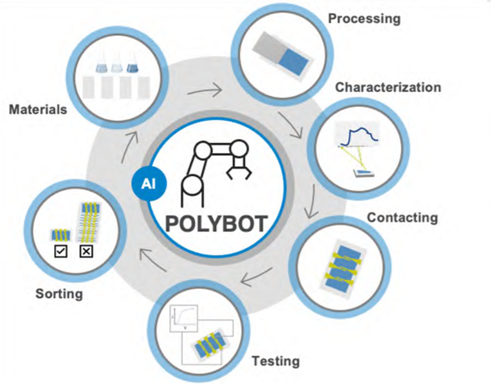Increasing performance demands and the short lifetimes of consumer electronics have resulted in rapid growth of electronics waste. In recent years, electronics built with conjugated polymers are gaining momentum in printable and wearable electronics and flexible energy devices because of their low cost, mechanical adaptability, and good compatibility with high-throughput manufacturing. But because these devices are disposable (often single-use), the plastic wastes they generate can pose severe environmental problems. To make polymer electronics environmentally benign after end-life use, researchers must understand the degradation process and identify optimal deconstruction pathways.
But depolymerization faces some big challenges because
of the myriad possible reaction pathways associated with combinations of stressors (e.g., pH, thermal, oxidative, light, voltaic and catalyzer). Despite years of research, there remains a scarcity of reliable data and a poor understanding of this problem, especially for conjugated polymers. In this project, we develop an autonomous method to identify the best stressor-specific, low-energy deconstruction pathways for conjugated polymers. Tasks include upgrading equipment to enable autonomous polymer deconstruction, completing a computational search of potential degradation pathways, developing a workflow, and integrating the workflow in a robotic system.
Successful implementation of our autonomous experiments (together with computational models and simulations) will enable a fundamental understanding of the molecular mechanisms and kinetics of deconstruction and reconstruction, accelerating discovery of energy-efficient polymer deconstruction pathways.
